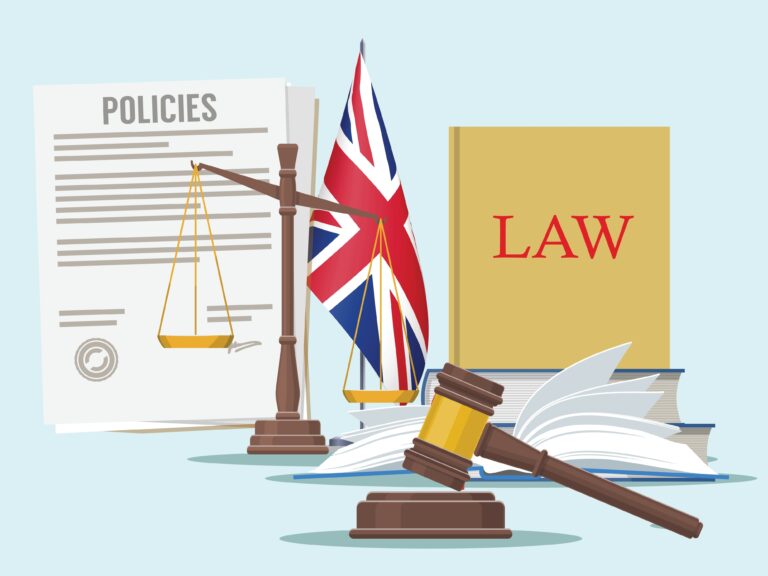Why The Law is an Ass on the Question of Consent
Jonathan Wheeler discusses the different ways consent is dealt with in English courts
“The age of consent”
“The age of consent” is a concept that most people understand. It is inevitably an arbitrary age set by the law at and over which a competent person can legitimately consent to sex. In this country that age is 16. To have sex with someone under 16, or in some circumstances, someone you did not reasonably think was at least 16 – is a crime. Most people understand that, even if some people ignore it.
Consent in the civil courts
That is the criminal law. But what strikes some people as odd is that there is a completely different law which is applied in the civil courts – the law which I use to obtain compensation for my clients. Consent in the civil courts is a question of fact, not of age.
So, in the case of R v Criminal Injuries Compensation Appeals Panel, ex parte August (2001), a 13 year old boy was said to have consented in fact to sex, even though he was clearly under the age of consent (which in those days was 21). August was born in 1976, placed in care in 1985, and was a psychologically damaged child. At the age of 13, he was also a male prostitute. In 1990 he went to some public toilets where he met a 53 year old man, who over the next four months paid him to participate in various sexual acts, including buggery. That man was later successfully prosecuted. However the Court of Appeal held that August was not entitled to compensation for what was done to him under the Criminal Injuries Compensation Scheme even though the acts were clearly criminal because of his age because (they said) he had consented. It followed then that the acts complained of were not ‘crimes of violence’, and therefore did not fall to be compensated under the scheme.
So a 13 year old could consent in fact to being buggered. To my mind how a 13 year old can consent to anything like that is beyond me. But that was the decision of that court.
Victim vulnerability and consent
The law since developed into considering the ‘vulnerability’ of the victim. So in R v Criminal Injuries Compensation Appeals Panel ex parte JE (2003), a prisoner with learning difficulties was groomed for sexual activity by an older prisoner and he was said to have ‘submitted’ to the older prisoner’s sexual demands. Submission – the court said in that case – is not the same as consent and the claimant was able to recover compensation because he was ‘vulnerable’. Personally, I think that an arbitrary distinction – how can the applicant in August not be said to have been ‘vulnerable’ on a true construction of that word?
August is however “good law” (as they say) and it’s the case which has informed our civil courts on the issue of consent ever since. And this is why – perfectly legitimately – a defendant facing a compensation claim for child sexual abuse, can run an argument that the claimant consented to the acts complained of, notwithstanding that in the criminal law, the claimant couldn’t have consented, and the perpetrator may have been convicted of the crime.
Practical application of the law of consent in civil cases
Let me show you how this works in practice:
I had a client, aged 20 when he instructed me, whose family were devout Catholics. His mother worked as a housekeeper at the presbytery and my client sometimes accompanied her to work as a child. During these times, he was befriended by the parish priest and – as my client later realised – groomed for sex. At the age of 15, the priest employed my client to do odd-jobs for him, and from then to the age of 17, he was sexually assaulted on numerous occasions, including acts of buggery. These were his first ever sexual experiences – at 15 years old – with his parish priest, who was aged 61.
I sued the Catholic Church on my client’s behalf. The Church ran the defence that my client had consented. I found this highly bizarre not least because I thought that the Pope insisted that all Catholic priests were celibate. Taking instructions from my young client on such a pleading – signed off by a senior member of the church into which he was born – was almost unbearable.
Exploiting the civil “consent” anomaly
I am concerned that this anomaly in the civil code is being exploited by some Defendants and by the Criminal Injuries Compensation Authority who are routinely running defences, or rejecting claims, on the basis of consent when the Claimant is as young as 12 or 13. Consent is an automatic and full defence to any claim for compensation because if the sexual acts were consented to, then no wrong (or tort) has been committed. A trespass to the person is only a trespass when that trespass is unwanted.
Cases which turn on difficult facts concerning consent
I know there are some cases which are difficult on the facts. Sometimes sexual activity takes place below the criminal age of consent, but continues after it.
One such case is JL v Archbishop Bowen & The Scout Association (2015) which involved a man who sued for compensation for his grooming and abuse at a young age, when he repeatedly returned to his abuser in adulthood and sexual relations continued up until the age of 31. In the meantime, the man had been to university, qualified as a solicitor and was holding down a successful career in the city. The judge in that case held that the sexual acts complained of up until the age of 19 were abusive in that they were unwanted; whilst he was not forced against his will, the claimant had been manipulated so that he could not properly be said to have consented to them in fact. However the sexual encounters after that age were consensual and as such the defendants could not be held liable for them. The church is appealing that finding at a hearing later this month.
My submission is that of course even people over the age of consent may not truly consent ‘in fact’ to sexual activity even where they could have done so lawfully. If the defendants wish to rely on ‘consent in fact’ below the age of consent, they have to accept that that also applies beyond it. They cannot have it both ways!
Grooming and consent
I raise here the sometimes misunderstood concept of ‘grooming’:
“Someone who calculatingly manipulates another to acquiesce to their sexual demands – by an abuse of power, by threats or by kindness, with gifts and treats, or with blackmail.”
When a child or a vulnerable adult is groomed, this can have a profound effect on their psyche. Remember that a child’s brain is not fully developed, they will be emotionally immature, and open to suggestion. They may be particularly vulnerable in other ways – ways that paedophiles exploit through targeting the unloved and isolated.
Often the grooming is so successful that the person on the receiving end doesn’t even realise at the time that they are being abused, or they believe they are in a relationship with a ‘boyfriend’ or a ‘girlfriend’. Rarely do my clients ‘put up a fight’, often the sexual acts they are involved in are not even violent in the way that a person in the street would understand.
However this doesn’t mean that they are properly consenting. The effects of grooming or the manipulation of a young mind may stretch far into adulthood. This explains the reason why survivors so often come forward to disclose so late in the day: because they are still affected by that manipulation, the threats, the shame and guilt, the humiliation, the belief that because they didn’t put up a fight, they were complicit, or even instigated the sexual contact themselves.
Hope for change through IICSA?
The Independent Inquiry into Child Sexual Abuse is actively investigating the issue of consent and how it is being raised in civil law suits as part of their work in examining the fairness of reparation for abuse victims and survivors. I am hoping they will recommend change.
A warning for defendants – don’t exploit consent
Until then, as long as the evidence warrants it, I have no problem with defendants pursuing a valid defence of consent. But if the issue is raised without foundation, as a way of pressurising claimants, to stall them, to create in their minds some fallacious ‘litigation risk’, then defendant lawyers are doing their clients no favours: because claimant lawyers like me will be looking at claiming additional aggravated damages where the conduct of the defendant may be said to cause “insult, indignity, humiliation, and a heightened sense of injury or grievance” (which is the test for aggravated damages from the leading case of Broome v Cassell (1972)). Aggravated damages can be claimed for behaviour subsequent to the tort itself – and particularly in the way that a defence is conducted (Warby v Cascarino (1989)). So defendants who employ such tactics – consider yourselves warned!
Advice for those affected by grooming and consent issues
Defendants are raising consent as a defence more and more, sometimes in relation to an adult abusing a child as young as 12 or 13. Often such a defence goes hand in hand with a failure to accept that our clients were manipulated and groomed. We will fight all such claims, and we have a track record of winning them: In such situations, consent is never an obstacle to us getting justice and compensation for our clients where they have been wronged.
Jonathan Wheeler is a partner with Bolt Burdon Kemp solicitors which employs the largest team of specialist child abuse compensation solicitors in the country. If you would like to get in touch please contact Jonathan on 020 7288 4837 or email him at jonathanwheeler@boltburdonkemp.co.uk.
This blog has been adapted from a talk Jonathan gave to the BLM/ 39 Essex Chambers Abuse Conference, London on 24th November 2016.










